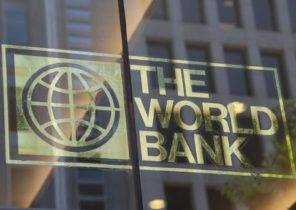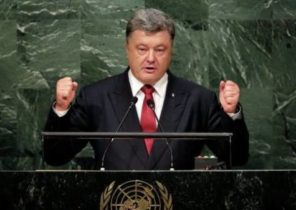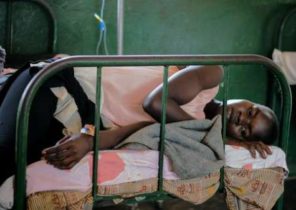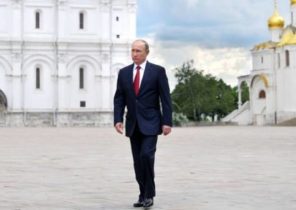In these and last weekend in Switzerland held a demonstration against the government implemented restrictive measures in social networks ply conspiracy theories (“it’s all invented bill gates”). Who is right? One of the Swiss experts in the field of crisis management is afraid that the “medicine” eventually turned out to be worse than the “disease.” But at this point there is another view.
“Closing the borders of European countries led to the result that we can quantify, namely to reduce the number of fatalities increased to 50 people per 1 million inhabitants”. Introduced in the country on March 17, the quarantine of which Switzerland is just gradually emerging from the end of April, saved the country from 400 “excess” deaths. In the “Swedish variant”, which implies virtually no restriction of social life, these people inevitably would have gone out of life.
These are recent calculations and conclusions of the team of experts headed Sornette Didier (Didier Sornette), Professor of the Higher technical school in Zurich (Eidgenössische Technische Hochschule — ETHZ), a specialist in studying and evaluating the entrepreneurial, epidemiological and nuclear risks. At the time of publication of the conclusions made in the scientific world, the effect is small exploding bomb (check that, as of may 19, in Switzerland from causes related coronavirus, died in 1 886). But now, some time later, looking back, D. Sornette method evaluates the social restrictions and quarantine in General more critically.
“It is a cruel medieval instrument, the last argument of those who are unarmed or is in a state of maximum uncertainty. Moreover, because Covid-19, likely was present in Switzerland already in the beginning of 2020, the relatively late introduction of restrictive measures in the field of personal mobility of people has resulted in only a very slight effect.”
“Fell asleep at the wheel”
“Easy to say in hindsight and to submit such calculations in two months (the Ambassador of the beginning of the quarantine),” argues Didier Trono (Didier Trono), Professor Laboratory of Virology and genetics at the Swiss Federal Polytechnic Institute in Lausanne (EPFL) and member of the Swiss national working group to counter the “pandemic Task Force Covid-19”, the scientific Advisory body established by the government.
“When I was first introduced restrictive measures, no one knew, not even we scientists didn’t know how Switzerland will affect coronavirus, do not rush, what is called, “pandemic over the edge” and can you do the Swiss health system to cope with the situation,” says D. Trono. Didier Sornett, in turn, is convinced that in Switzerland even before the pandemic prevention of such health crises was put badly. “We like fell asleep at the wheel,” he says in a conversation with the portal SWI swissinfo.ch.
“First, we watched as the severity of the epidemic, which then just started in China, everywhere been underestimated. Then followed criticism of China as allegedly incompetent country, whose approach to fighting the coronavirus is too restrictive and strict. And when the virus finally came to us, we were prepared for him is totally inadequate. In some European countries there reigned a panic, many of them began to adopt the Chinese measures, but they did it not as effective. And we ought not to restrict the freedom of movement as tough and comprehensive, but to concentrate on the foci and epicenters of the spread of the virus,” — says Dmitry Cornett.
Didier Trono do not agree. He says that “in some regions of Switzerland, in Ticino, Basel and the lake Geneva region — Covid-19 spread like ink on blotting paper, and at the same time proceeding from several points, where the population didn’t have adequate specific immunity. We are faced with the unknown up to this point with a virus that was spread with extremely high speed. It was necessary to act urgently. At that time nobody thought about the collateral damage from the quarantine because the priority was the health of people and the protection of public health”.
The value of life or its value?
According to Didier Sornette, on the eve of the pandemic, the experts estimated the risk of SARS-Cov-2, based on mortality rates that are comparable to the Asian flu of 1957 and Hong Kong flu of 1968 year or two epidemics, the mortality rate which reached 0.2% of the total number of infections. “At the time, it led to the death of one million people worldwide, the victims were mainly among the most vulnerable segments of the population. Of course, these numbers are tragic, but it was still not the end of the world,” he says.
“For the last time, as it seems, the universal endorsement of the notion that mortality among the infected (such viruses) on average from 0.8% to 1%,” continues D. Sornett. “But even this figure is misleading because it hides a huge, literally ordinal, the differences between healthy people and weak elderly people with severe disabilities or already had their presence of diseases. We would need to choose a strategy of selective protection of these citizens, which, incidentally, should continue to do now.”
Didier Trono mind. “The types of influenza, mentioned by my colleague, the spread is not as fast as Covid-19, although here we can talk about a kind of mini-pandemics. But the fact remains: a rating of how much worth a human life, is a very delicate matter, and not everyone will dare to do it”. However, he does not deny that such issues regularly arise in hospitals when, for example, in the intensive care unit bring the elderly person. “Then the doctors have to make difficult decisions, knowing that some of these people a chance of survival does not exceed 10%”.
Balanced solutions
From the perspective of Zurich expert Didier Sornette we are talking about much larger issues. “What kind of quantitative and moral ratio is the number of lives saved adopted restrictive or semi-restrictive measures, with the number of lives, just got due to a total “lockdown” at risk?” Didier Trono believes that “to ask such a question makes sense. But not to immediately answer him, but in order to start to create already in the period of weakening of the restrictive measures, the Foundation to prevent long-term side effects, and most importantly, for measures which will not allow the epidemic to erupt again”.
Now for some time Sornette Didier and his team analyze new behavioral forms that arise in society in the form of chain reactions to the experience associated with the new lifestyle that people are forced to conduct through the imposition of quarantine restrictions, including in the area of personal mobility. The researchers want to find out what more serious: the consequences of these reactions or consequences of human exposure to the virus. Especially scientists interested in the implications of quarantine, directly affects the health and psychological balance of people, for example arising from a pandemic gaps in production chains and supply chains of food products. In this sense, D. Sornett stands for “balanced solutions”, which must be split into packages short, medium and long term.
And he regrets that in the above-mentioned scientific working group “Task Force Covid-19”, which starting from March 2020 advises the Swiss government and regional authorities on all matters related to the coronavirus, “there are no pediatricians or cardiologists. There is also in its composition neither economists nor specialists in the field of management of logistics and supplies.” But if D. Cornett and critical of the authorities, first of all because — in this case — they “listen only to scientists with a single narrow epidemiological specialization”. And while the people of Switzerland recently — are starting to learn to live more or less normal life in society would need to support what Didier Sornette is called in their jargon “an individual stamina,” that is, “we should be more attentive to the individual while we are now focused on finding global public responses.”
“Destroy model”
In fact, in his own way, but throws the world of science is a real challenge. “From my point of view, the findings of the epidemiologists on the basis of the design they have created working models, too vulnerable and fragile the face of serious criticism. Epidemiologists — it’s not people who are inclined to take decisive action. They possess, who would argue, broad knowledge, but in very narrow areas, as zealous guardians of their own “hard-won” methods of data analysis and expand the scope of knowledge, but only in my particular area”.
As a consultant of the Cabinet of Ministers and a member of the working group “Task Force Covid-19”, where he heads the subgroup on diagnostics and testing, Didier Trono do not consider yourself an intellectual is not of this world, who, working behind closed doors in the service of the government, enthusiastic about something highly technical and incomprehensible to most companies. “This working group will undoubtedly include epidemiologists, but basically it’s all the same, thank God, consists of people practical warehouse, i.e. physicians, economists, biologists and other experts from relevant areas,” he says.
“Besides, I and my colleagues are in regular contact with all sectors of society and economy, including private business, both on a national and international level. The vulnerability and inaccuracy of calculation models and hypotheses is not something new in this sublunary world” — continues the infectious disease specialist. “A model, a working hypothesis, always useful, it is food for thought and an occasion for in-depth analysis. And I often say to my colleagues that to create models only need to then try to break them, figuring out their weaknesses, because the only way we will be able to make further progress…”.
The Swedish model
Didier Sornette believes that in Switzerland, based on the strategy of social distancing, various physical and mental barriers and established to protect specific risk groups, would be sufficient to impose far less stringent measures of quarantine and isolation. From his point of view and its shared by many, as a possible alternative, would have gone this model has been implemented in Sweden. There are citizens in a much lesser extent, were limited in their personal mobility. But “even there you still have then to assess the effectiveness and adequacy of this model in the medium and long term, based on whether the second wave of the epidemic or not, and given the medical and economic consequences.”
Didier Trono not inclined to believe the Swedish model is so completely successful. “Not so it works well — you should only look at the number of deaths from Covid-19 and the daily number of new infections in this country, the more that in fact the Swedish model detects significant similarities just with the Swiss method, when most people are working from home, many cafés and restaurants are closed, and the population in General follows the rules of social distancing. One Swedish friend, however, reminded me that in this country it is easier to encourage citizens to observe social distance, because for most of the year and so they stay home where it’s warm and cozy. For people from southern Europe, which is very important, physical contact, social distance is a very serious limitation,” — says D. Trono.
Until then, until the vaccine, the only method of containing the pandemic is the creation of collective (or “herd”) immunity. Needs to recover about 60% of the population, then the wave will go on recession itself. Didier Sornett, too, would like to believe in such a method, which is needed primarily in order to “avoid unintended consequences possible in theory decisions on the re-introduction of the quarantine. In fact, no expert now, not sure what the notorious second wave of the virus will not be — and may already be this summer.”







